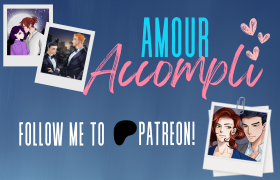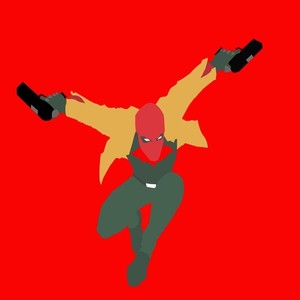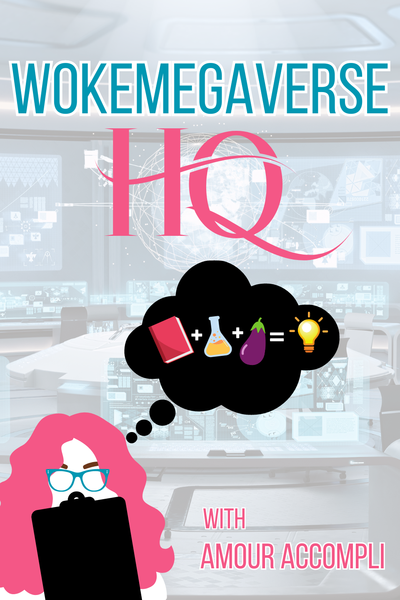Alright, a couple of you liked my intro to Marvell and Herrick, so let’s feel the burn by taking on something that’s a little trickier and saucy in a subtler way. It may not be as outrageously fun as Marvell, but you could consider it even more dangerous to virginity because Donne can take a tiny non-event and make it into a whole exhortation on why they should smash. No Indian Ganges. No marble tombs. No screwing eagles.
Just… a flea bite.
Donne is slick as hell. He could argue the white off of rice.
Moreover, as I will explain after the poem, underpinning the playfulness is sincerity. This poem was written for The One, the real IRL one that he actually had to have. To me, it feels a bit different for that reason.
Now, let’s get technical. One of Donne’s main weapons, generally, is the use of complex, extended metaphors called “conceits.” In “The Flea,” Donne builds his whole case on the tiny back of a flea, using it as a metaphor/symbol for some very big ideas.
The Flea
by John Donne
Mark but this flea, and mark in this,
How little that which thou deniest me is;
Hey, would you look at this flea? See how tiny it is? That’s how small our problem actually is even though you’re making a big deal out of it.
It sucked me first, and now sucks thee,
And in this flea our two bloods mingled be;
"This flea bit me, and then it bit you… So inside of it, our blood is mixed together."
(“Okaaaaaaay,” she thinks, “Where’s he headed with this? Because this guy ALWAYS has an angle.” She is not wrong.)
Thou know’st that this cannot be said
A sin, nor shame, nor loss of maidenhead,
Yet this enjoys before it woo,
And pampered swells with one blood made of two,
And this, alas, is more than we would do.
“You know a flea bite is nothing to be ashamed of. Nothing sinful about it. A flea biting you does not cancel out your virginity (maidenhead).”
True, true… all true… Donne says things that are reasonable to get her/us nodding along, in the habit of agreeing with him. Classic persuasive technique— get ‘em used to saying Yes before you make your big ask.
And then? Ruh-roh! SHIFT WORD. “YET.”
“And YET you let this frigging flea stick its mouth bits on you without even making it butter you up first! A flea! I’m over here sad and lonely, doing the most to get a little action, while this SPOILED ROTTEN FLEA gets to suck on you and merge our blood.”
Donne really leans into this idea of marriage as the commingling of lives, and what is a better symbol for life than blood? When we mingle our blood, we mingle our lives. Fun fact: Female fleas require much more blood to live and breed than males. The flea that bit you was likely a lady flea.
Oh stay, three lives in one flea spare,
Where we almost, nay more than married are.
So, evidently, to prove to him that the flea is not bae, the Lady in question puts the edge of her fingernail down on the flea, offering to kill it.
I love that her side of the interaction is both absent and present in the poem. It’s not a true “apostrophe” (when a poet address an absent subject, often preceded by an Oh!)… she’s there, we feel her, and she’s represented sympathetically. Like… Donne knows he’s being a clown, and she knows it, too, but he lets us see that he is a clown through HER actions. He gives us so little information, but we can infer what her words and actions are so easily— it’s so damned clever.
Donne encourages us to take her side and say “This guy’s too much!” I find that kind of self-owning pretty charming. There’s a lot of good-natured coping with rejection in 17th century poems, but this is especially great because there is zero incel-style resentment on his side… (Do people use the 📱 emoji to indicate a self-own? They should. Cell phone? Self-own?)
Sorry, I got off track. She was about to kill the flea… So, the speaker says "NO! WAIT! DON’T!" (The word “stay” in older poems can throw readers off, because it is more likely to mean “wait” or “stop” than “remain”—“Oh stay!” Means “Hold up!”) "That flea contains our life-forces! You kill it, you’re killing all three of us!"
This is nerd-flirting, folks. In literature we call this approach “hyperbole,” or exaggeration for effect. It’s kind of sexy to put this level of intellectual effort into hitting on someone, though, isn’t it? Like… give him style points at the very least.
This flea is you and I, and this
Our marriage bed, and marriage temple is;
Though parents grudge, and you, w'are met,
And cloistered in these living walls of jet.
Though use make you apt to kill me,
Let not to that, self-murder added be,
And sacrilege, three sins in killing three.
This flea is the church where we married! This flea is our marriage bed! (Keep in mind that shedding some blood on one’s wedding night due to a freshly perforated hymen was expected of every nice girl— don’t get me started— and the flea got some blood, so…)
And now the real tea—the reason why their marriage and le smash have not occurred has to do with parents who do not support this union. But the thing is, he says, this union has ALREADY happened inside the flea! Inside its living, black (jet) body, their union is safety hidden away (cloistered). It's a done deal now!
Next comes more self-deprecation: the speaker says, “I know you are resistant to my advances and frequently want to kill ME, but let’s not add SUICIDE into the mix by killing the flea that contains YOUR life force. That flea is a church, now. A sacred space… killing it would also be SACRILEGE."
Ah, there you go, John Donne. Lean into the “straw man” technique. He sets up fake sins in order to draw attention away from the real sins. Get her so preoccupied with suicide, murder, and sacrilege that she allows a little harmless lust and fornication. Le tiny smooch? Le wee smash? *Bats eyelashes hopefully* 👁️ 👁️
I like that the hyperbole is so obvious that there's no real pressure. She’s not an idiot, it’s clear she’s not falling for this, and he never actually expected this to work.
Cruel and sudden, hast thou since
Purpled thy nail, in blood of innocence?
Wherein could this flea guilty be,
Except in that drop which it sucked from thee?
Oh man! Looks like she killed the flea with her fingernail and its/their innocent blood has stained her nail. Oh what a tragedy! The poor, sweet, bloodsucking, plague-bearing flea. It only took one tiny drop! How could she!? (If you’ve ever had a flea bite, you know how she could. Itchy af.)
Yet thou triumph’st, and say'st that thou
Find’st not thy self, nor me the weaker now;
She came back at him off-camera. She triumphantly told him that she feels just fine post-‘suicide’ and looking at him, he looks to be just fine, too, despite her having ‘murdered’ him and the flea. She doesn’t feel a bit weaker. It was no big deal, as she predicted.
But Donne was setting her up for this… and he turns her minimization of these events back on her an epic logical finishing move.
’Tis true; then learn how false fears be:
Just so much honor, when thou yield’st to me,
Will waste, as this flea’s death took life from thee.
And the trap is sprung. “You win,” he tells her. “You were right, I was totally wrong. There was never a need to panic. We’re both still alive. Killing the flea really WAS no big deal… Similarly, the amount of ‘honor’ you will lose as a result of doin’ it with me will be no big deal! Equivalent to the amount of life we lost when you killed that flea! Cue the Barry White!"
I assume that he gives her a look at this point that is 50% smug and 50% horny, because she walked right into that one.
The poem is playful, but the circumstances surrounding it were more serious. Donne had a great education and he had some pretty fancy relatives (Sir Thomas More, close friend and adviser to Henry VIII—who had him beheaded for being Catholic too loudly, as friends do). Since that era, though, his family had fallen on hard times (see: Catholic).
With his education, Donne got a job working for a nobleman and then fooled around and fell in love with the nobleman’s niece, Anne More.
Naturally Anne’s family did not want her to marry the Catholic help, so they ended up eloping. She was basically disowned as a result, and for most of their early marriage, they struggled financially. Still, they had TWELVE children together in their 16 year marriage. Donne wrote to Anne and about her extensively, and it’s clear how much he loved her. Their situation improved when he took holy orders (Church of England— married priests were OK) and became a royal chaplain.
Shortly after his big promotion, though, Anne died (childbirth-related). Donne vowed never to marry again, and he didn’t. He spent the rest of his life focused on his religious writing and preaching. So while the poem is a bit silly, it wasn’t inspired by a passing fancy. Anne was his person.
Let’s quickly look at one of his later, more religious poems… He’s still arguing, but with Death now. He has major beef with Death.
In “Holy Sonnet X," Donne has just recovered from a serious illness that almost got him (probably typhus). He takes the opportunity to chirp at Death. Why do I call it chirping (trash talking)? Because he is using “thou” to speak to Death instead of “you.”
Sidebar:
English used to have a “tu” form, thou, which was reserved, like “tu” in French, for informal occasions— talking to friends, children, or... to people who are due some verbal respect, but whom you prefer to insult. You can mentally substitute “this bitch right here” for “thee/thou” in this sonnet. No matter how fancy “thou” may sound to us today, it was always the opposite of fancy.
Thou is the subject pronoun (like I or She). “Thou thinkst thou art cool?”
Thee is the object pronoun, (like me or her). “I think of thee rather as mightily uncool.”
Thy/Thine are the possessive pronouns, one for using in front of nouns that start with a consonant, one for using in front of nouns that start with a vowel. “If thou wishest to have thy nipples twisted and thine eye blackened, thou should’st approach. Yea, verily do I wish a motherfucker WOULD.”
Now… onto the sonnet and all of its insulting use of thou:
Holy Sonnet X
Death, be not proud, though some have called thee
Mighty and dreadful, for thou art not so;
Slow your roll, Death. I know people think you’re big and bad, but y'ain’t shit.
For those whom thou think'st thou dost overthrow
Die not, poor Death, nor yet canst thou kill me.
You claim to have conquered everyone who has died, but you didn’t defeat them, son. You just chauffeured them. You can’t defeat ME, either.
From rest and sleep, which but thy pictures be,
Much pleasure; then from thee much more must flow,
And soonest our best men with thee do go,
Rest of their bones, and soul's delivery.
What, I’m supposed to be afraid of YOU? Why? You’re basically just a big nap, and I fucking LOVE a nap. I bet I’ll love a dirt nap even more, so don’t threaten ME with a good time. Besides, the better someone is, the sooner they seem to die— I think the best people know something we don’t— that the Big Nap is very refreshing.
Thou art slave to fate, chance, kings, and desperate men,
It’s not just that You aren’t scary. It’s also that You’re an NPC. A worker bee. A peasant. You have no say over when you show up. You’re a glorified Personal Assistant. You’re Fate’s PA. Luck’s PA. A King’s PA. Suicidal people’s PA. They give the order, and You have to show up when summoned. In Donne's day, we might have called Death a "lickspittle."
And dost with poison, war, and sickness dwell,
On top of that, look. at. Your. crew. Poison, war, sickness…? Real classy crowd you hang with, there, Death.
And poppy or charms can make us sleep as well
And better than thy stroke; why swell'st thou then?
Also, your game is weak. I mean, yes, you can deliver a nap. We’ve established that. But so can opium. And anti-insomnia charms. They’re even better at it than you are, so why are you all puffed up?
(There’s just something so timeless about “Why swell’st thou then?”— Minus the antiquated language, the challenging of an over-inflated ego is still a key component of any good beef.)
So, this brings us to the final two lines of the sonnet. In traditional sonnets, the last two lines should summarize or drive home the point of the other lines. It’s called the envoi— French for ‘send-off’ because it sends you off with your take-away from the sonnet as a whole.
One short sleep past, we wake eternally
And death shall be no more; Death, thou shalt die.
And what’s on the other side of the Big Nap, huh? This big Victory of yours? (This is a Christian paradigm— Donne is saucy but devout). ETERNAL LIFE is what’s on the other side, bud. Me, digi-volved into an unkillable form. You know who dies when we’re all unkillable? YOU, pal. So thanks for the lift, but You aren’t doing anything but putting yourself out of a job.
And that’s how a Metaphysical poet who lost his beloved wife and almost died himself gives Death the middle-finger. Well-played, John. Well-played.
These aren’t even my favorite John Donne poems (That’s probably “A Valediction Forbidding Mourning”), but they do show peak Metaphysical technique.













Comments (10)
See all